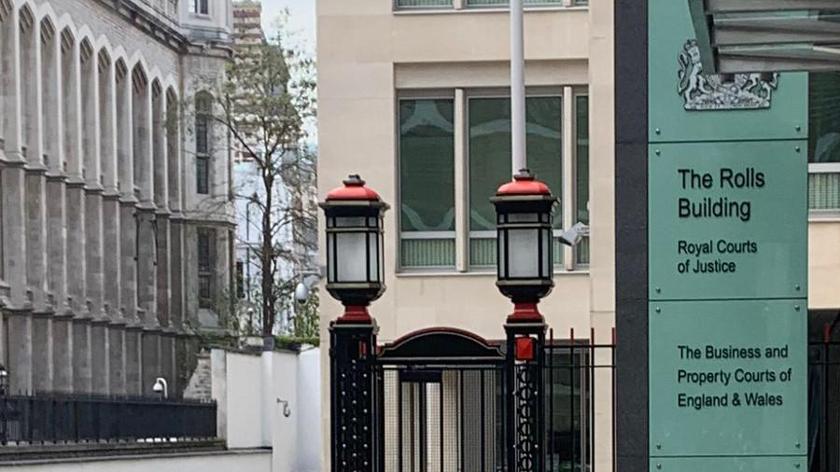GSK told to pay higher royalties to AZ on Zejula sales

The entrance to the Rolls Building, which houses the Business and Property Courts of England and Wales.
A court in the UK has said that GSK should pay AstraZeneca a higher royalty rate on sales of ovarian cancer drug Zejula, which competes with AZ’s top-selling PARP inhibitor Lynparza.
The judgment is from a lawsuit first filed two years ago, in which AZ alleged breach of an agreement between the original developer of Zejula (niraparib) – Tesaro – which was acquired by GSK for $5.1 billion in 2018.
Tesaro developed the drug with technology licensed from AZ, with the latter entitled to a share of sales. GSK has rights to the drug for ovarian, fallopian tube, and peritoneal cancers, while Johnson & Johnson – which is not involved in the dispute – has rights for prostate cancer.
GSK countersued shortly afterwards, demanding a refund of around £2.5 million for overpaid royalties to Tesaro, which it operates as a subsidiary company.
At issue was the contention that GSK’s interpretation of the licensing agreement was that it covered only uses of the PARP inhibitor covered by the licensed patents, and not broader use of the drug that has followed further development of Zejula in ovarian cancer.
The High Court of Justice Business and Property Court of England and Wales has ruled, however, that Tesaro is obliged to pay royalties “on all net sales of Zejula in each country in which there are licensed patents from the first commercial sale in that country,” according to a Reuters report.
A GSK spokesperson told the newswire the company was disappointed by the outcome and was considering its next steps.
When the lawsuit was filed, there was speculation that the royalties could amount to hundreds of millions of dollars, but Zejula has underperformed commercially since then and has struggled to close the gap with Lynparza, which made $2.6 billion in 2022.
GSK reported worldwide sales of £463 million ($577 million) last year, buoyed by a new first-line indication in ovarian cancer, but hit a hurdle last November when, at the FDA's request, it restricted the second-line maintenance indication for Zejula to only patients with deleterious or suspected deleterious germline BRCA mutations.
In September, it also voluntarily withdrew Zejula’s fourth-line indication for the treatment advanced ovarian, fallopian tube, or primary peritoneal cancer with homologous recombination deficiency (HRD) mutations.
The company is also developing niraparib in HER2-negative BRCA-mutated or triple-negative breast cancer, as a combination with its checkpoint inhibitor Jemperli (dostarlimab) for first-line ovarian cancer maintenance therapy, and as a maintenance therapy for previously-untreated non-small cell lung cancer (NSCLC) patients in combination with Merck & Co’s checkpoint inhibitor Keytruda (pembrolizumab).
Image by Boggling2019 via Wikimedia












